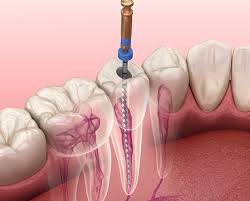Missing teeth can affect your smile and overall oral health. Dental implants offer a permanent solution to restore both the function and appearance of your teeth. Learning more about these dental devices can help you determine if this treatment is a suitable option for your dental needs. Here is more information on what dental implants are, the conditions they address, what the process involves, and when you should consult an implant specialist:
What Are Dental Implants?
A dental implant is a surgical fixture placed into the jawbone, which then fuses with the bone over time. This implant acts as an artificial tooth root, providing a stable foundation for a replacement tooth or bridge. The replacement tooth, known as a crown, is custom-made to match your natural teeth.
Implants are typically made from titanium, a biocompatible material that integrates well with bone tissue. This process, called osseointegration, is what makes dental implants a durable and long-lasting solution. An implant specialist performs the procedure, bringing specialized training to the placement and restoration of implants.
What Conditions Do They Address?
Dental implants are a versatile treatment option for various forms of tooth loss. They are used to replace a single missing tooth, multiple missing teeth, or even an entire arch of teeth. Patients who have lost teeth due to injury, decay, or periodontal disease can benefit from this procedure.
Implants also address the issue of bone loss that occurs when a tooth is missing. The jawbone may begin to deteriorate without the stimulation of a tooth root, which may alter facial structure. Dental implants provide the necessary stimulation to help preserve the jawbone’s density and form.
What Does the Process Involve?
The dental implant process is completed in several stages over a few months. It begins with a comprehensive dental examination, including X-rays and 3D imaging, to assess the condition of your jawbone. This allows the specialist to create a detailed treatment plan tailored to your specific situation.
The next step is the surgical placement of the implant into the jawbone. Following this, a healing period of several months is required for osseointegration to occur. Once the implant has fully fused with the bone, an abutment is attached to it. The final step is the placement of the custom-made crown onto the abutment, completing the restoration.
What Are the Benefits?
Dental implants offer several benefits for patients with missing teeth. They look, feel, and function like natural teeth, which may improve your ability to chew and speak. Dental implants do not require reducing other teeth, which leaves more of your own teeth intact, improving long-term oral health. With proper care, implants are a reliable and durable solution for tooth replacement.
When Should You See an Implant Specialist?
You should book a consultation with an implant specialist if you are missing one or more teeth and are looking for a permanent solution. A specialist can determine if you are a candidate for implants by evaluating your oral health and bone density. If you have experienced trauma to your teeth or have significant tooth decay, an implant specialist may offer guidance on the most appropriate course of action. They have the expertise to manage complex cases and provide a treatment plan that aligns with your health goals.
Schedule a Consultation Today
Dental implants provide a durable and natural-looking solution for tooth loss, helping to restore function and aesthetics. They address issues ranging from single tooth replacement to full-mouth restoration while helping to preserve jawbone health. If you are experiencing tooth loss, a consultation can determine if implants are right for you.
Social Sharing
Your Content Goes Here
Latest Posts





